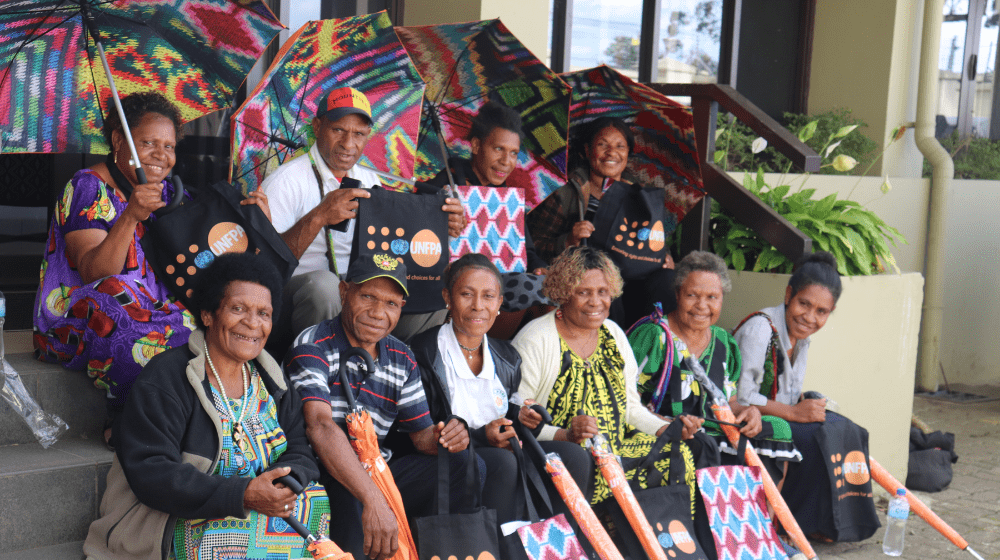Thoughts. Feelings. Behaviors.
These are three elements that community health workers must be able to recognize and differentiate when delivering mental health support in their community.
These elements were examined in depth over the course of a capacity-building workshop on the Common Elements Treatment Approach (CETA) conducted for 10 community-based health workers from Enga Province. These health workers, though they are not trained mental health practitioners, are the frontline responders for survivors of violence and, with a lack of qualified mental health services in the province, find themselves needing to manage profound stress and trauma in patients and families.
The virtual CETA training provided practical information on safety assessment and safety planning, cognitive coping, interpersonal violence, behavioral activation, and problem-solving techniques.
Officer-in-Charge of the Family Support Center in the Enga Provincial Health Authority, Sr. Betty Watao, shared her gratitude for aligning the elements of thoughts, feelings, and behaviors to correctly counsel clients.
“When I spoke to my patients and clients, I would mix up my assessment of thoughts, feelings, and behaviors because I was not aware that there was an order, or triangle, as taught in this training.”
“Now that I know, everything makes sense,” she said. “It is like a light switch has come on in my head. I look forward to treating my clients because I know thoughts should be addressed first, followed by feelings and then behaviors.”
“They are different but are connected.”
The CETA workshop was facilitated by the United Nations Population Fund with funding from USAID and support from local partners the Enga Provincial Health Authority and the Catholic Diocese of Wabag.
“I cannot wait to start implementing this practice in my Family Support Center,” shared Sr Betty. “I will teach my health workers what I have learned so they too can be able to correctly differentiate thoughts, feelings, and behaviors when working with patients” Sr. Betty shared.
This training also aims to decrease stigma and barriers to support-seeking behaviors and facilitate access to available mental health services in the province.


